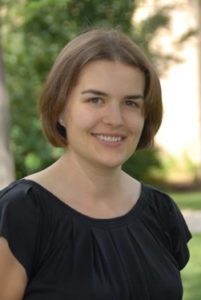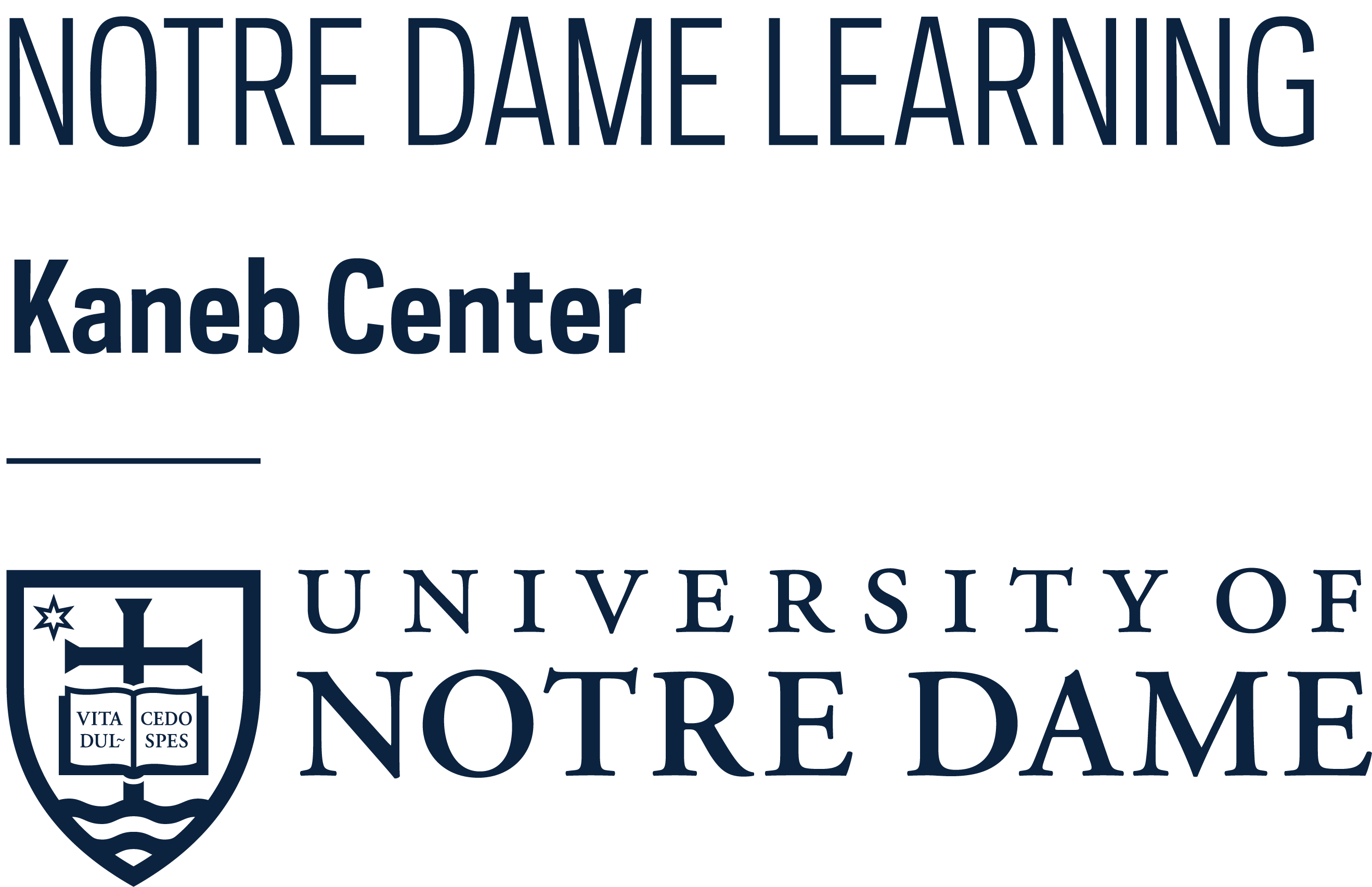In our Faculty Feature series, the Kaneb Center interviews teachers around campus to learn about what motivates them, discuss techniques they use in their classrooms, and share bits of wisdom with others in the Notre Dame community and beyond! This edition, we feature Amanda Hummon from the Department of Chemistry & Biochemistry.
Tell us a little about yourself.
I am an Associate Professor of Chemistry and Biochemistry and a Researcher at the Harper Cancer Research Institute. I grew up in Pittsburgh, PA and fell in love with chemistry as a high school student. I loved the simplicity and universality of the periodic table. I studied chemistry in college and graduate school. After I finished my Ph.D., I decided to apply my chemistry background to cancer research. I spent four years as a post-doctoral researcher at the National Cancer Institute before coming to Notre Dame in 2009.
Why did you decide to become a teacher?
I really enjoy interacting with students. As a graduate student, I mentored undergraduates in the lab. Then as a post-doc, I mentored graduate and medical students. In all these cases, I found that I really enjoyed the teaching aspect of the project. It is incredibly rewarding to help someone else understand a difficult concept. I also find that teaching others is one of the best ways to determine whether or not you really understand a topic.
In what ways do you find teaching rewarding or meaningful?
Chemistry is a subject that gets a bad rap. It can be perceived as difficult and unapproachable. In my classes, and in particular, in my Chem 10101 class, I aim to make chemistry approachable and enjoyable. It is such a central, important science but many people are intimidated by it. Nothing gives me greater satisfaction than to have a student tell me that they anticipated disliking my class but actually found it instructive/meaningful/enjoyable.
Describe one teaching technique you like to use in your classes.
I use a lot of chemical demonstrations and YouTube videos. The availability of wonderful demos is a huge advantage for chemistry teachers. In my Chem 10101 class, I do a demo in every lecture. For example, when we discuss the periodic table, I explain how adding one more electron can make a huge difference in chemical reactivity. We discuss the difference between Hydrogen (1 electron) and Helium (2 electrons). We then watch a YouTube video of the Hindenburg exploding. The Hindenburg was supposed to be filled with inert helium, but because of a global helium shortage, it was filled with reactive hydrogen, with deadly consequences. After we watch the YouTube video, everyone dons earplugs and I put on Personal Protective Equipment. Then, with the students a safe distance away, I light balloons on fire. While the helium balloon sounds like a regular air-filled balloon exploding, the hydrogen balloon produced a huge boom and a substantial fireball. There is nothing like a fireball in class to help students remember a key concept.
What advice would you give to a new teacher?
You have to be respectful with your students. Treat them fairly and explain why your class policies are the way they are. Also, don’t feel that you need to cram a ton of material into a lecture. I find that less is more when it comes to teaching. I tend to emphasize one or two major concepts in a lecture. Asking your students to absorb a ton of information is unrealistic and does not promote retention of the material.
In your opinion, what makes a great teacher?
Great teachers are invested in their students. They do their job because they enjoy it and they want to pass their love of learning on to others. They are also willing to invest time and energy into their students.
Thanks, Amanda!
